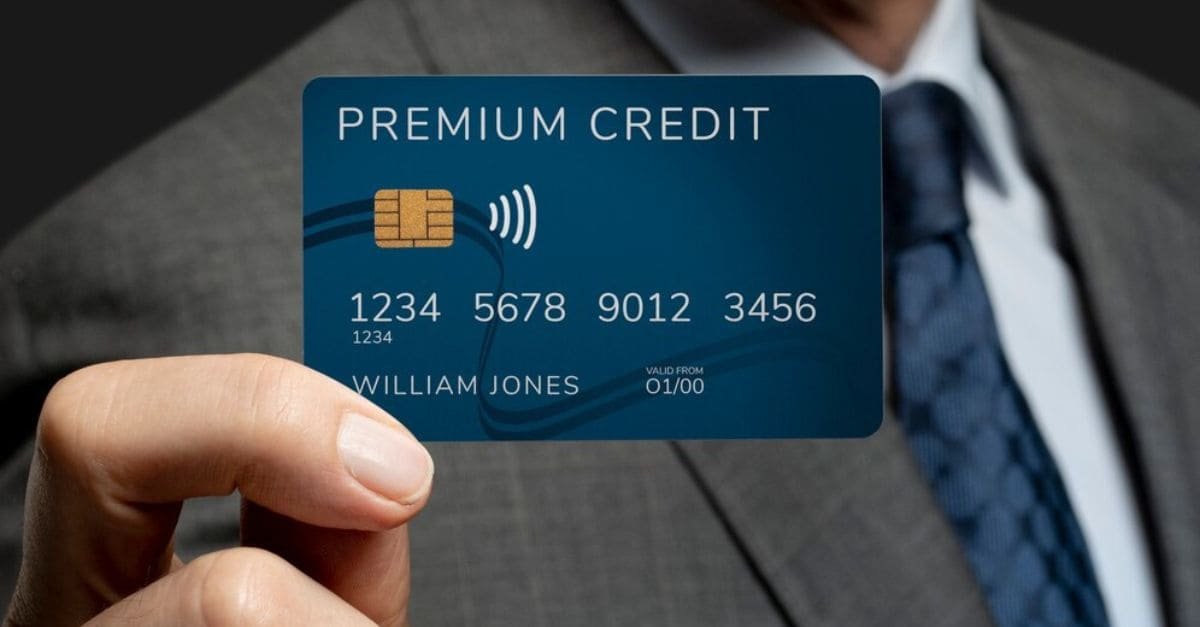
Are credit cards haram? It’s a question that has sparked debate among many devout Muslims. Islamic teachings emphasize the importance of avoiding riba, or usury, which involves charging or paying interest. This principle is the foundation of Islamic finance and is why many Muslims are cautious about engaging in financial transactions involving interest.
Regarding credit cards, the main concern is the potential for accumulating interest if the balance is not paid in full by the due date. While some argue that using a credit card is permissible as long as you make the payments on time and avoid paying interest, others believe that credit cards are inherently haram because they involve interest-based transactions.
We will explore numerous viewpoints and arguments to understand the Islamic view about Riba. By examining both sides, we hope to provide clarity and guidance for Muslims navigating the world of credit cards while maintaining their religious beliefs.
Join us as we explore the complexities of this issue and shed light on whether credit cards can be considered halal or Haram according to Islamic teachings.
Table of Contents
Quick Highlights:
- Credit cards offer numerous benefits, such as building a credit history and providing financial freedom.
- Muslims living in areas without halal alternatives may face challenges without credit cards.
- Credit cards are considered Haram. In the Scholarly opinion, alternative options must be sought.
- Alternative options for halal financing include Islamic banking, Qard Hasan loans, and Takaful insurance.
- Factors to consider when determining the permissibility of credit cards include individual discipline, terms and conditions, and availability of Sharia-compliant options.
- Islamic banking institutions also provide credit cards that align with Islam’s principles, offering a convenient alternative for Muslim individuals.
- Practical tips for managing finances in a Sharia-compliant way include budgeting, avoiding interest-based transactions, seeking alternative options, and educating oneself.
- There are common misconceptions about credit cards in Islam that need clarification, such as the belief that all credit cards are Haram and only for the wealthy. By educating themselves and practicing responsible credit card usage, Muslims can make conscientious decisions that align with their faith.
- Zero-interest credit cards allow cardholders to borrow funds or make purchases interest-free for an introductory period of 6 to 24 months.
- Scholarly opinions vary on whether all credit cards are Haram or not.
What is A Credit Card?
A credit card is a rectangular card issued by banks and other financial institutions that allows the cardholder to borrow funds for purchases up to the credit limit. The borrower must return the funds within the specified period, usually stated on the credit card statement. No interest will be charged if they return the funds within this period. However, if they fail to do so, interest and late fees may be added to their outstanding balance and compound monthly until it is fully paid back.
In contrast, zero-interest credit cards offer an introductory period of 6 to 24 months where cardholders can borrow funds or make purchases without paying interest. After the initial period ends, the interest rates will revert to the terms and conditions specified by the credit card company. However, zero-interest credit cards involve balance transfer fees, processing fees, or monthly fees, which need to be considered when evaluating the actual cost of maintaining a recurring balance on one of these credit cards.
Understanding Credit Cards: How They Work
Credit cards allow users to make purchases on credit, meaning they can spend money they don’t currently possess with the promise of paying it back later. Credit card companies generate revenue by imposing interest on the credit that is granted to their clients. While this may seem simple and convenient, Islamic scholars have scrutinized its moral implications.
Are All Credit Cards Haram?
When it comes to whether all credit cards are Haram or not, scholarly opinions vary. One group of scholars argues that traditional credit cards are impermissible because the contract entered into between the borrower and the bank is Islamically invalid (agreement to pay riba/interest in the event of a missed or delayed payment), even if the borrower plans to pay their monthly statement balance off in a timely fashion. The second group of scholars considers traditional credit cards permissible under certain conditions, which will be detailed later in the article.
While Islamic banks and some traditional banks in other geographic markets offer Shariah-compliant alternatives to conventional credit cards, there are still no viable options in the US market, but this is hopeful to change shortly.
Understanding the Concept of Haram in Islam
In the Islamic faith, Haram is a term used to describe anything explicitly prohibited by the Quran or the teachings of Prophet Muhammad (peace be upon him). Muslims need to avoid engaging in haram activities to uphold their faith and maintain their spiritual well-being. It is essential to clearly understand what actions or items are considered Haram in Islam, especially when examining the permissibility of credit cards.
Why Credit Cards are Haram in Islam?
According to Islamic law, any financial transaction that involves the charging of interest or “riba” is forbidden. One reason why riba is strictly prohibited in Islam is that it is seen as a grave sin and an act of exploitation. Several Islamic scholars have issued fatwas (rulings) that credit cards are Haram due to their reliance on interest-based financing.
The Islamic Perspective on Interest (Riba)
Islamic teachings emphasize the prohibition of riba, which refers to the charging or paying interest. Riba, or interest-based transactions, is widely viewed as exploitative and detrimental to both individuals and society. In contrast, Islamic finance prioritizes ethical and equitable financial dealings that benefit all stakeholders.
Regarding credit cards, the primary concern is the potential for accumulating interest if the balance is not paid in full by the due date. This interest, often referred to as usury, is seen as a form of riba and is strictly prohibited in Islam. Therefore, it is essential to examine whether credit card transactions fall under the category of Haram due to their involvement with interest-based transactions.
Sharia-compliant Alternatives to Credit Cards
Islamic finance has developed Sharia-compliant alternatives to conventional credit cards to address interest concerns. These alternatives aim to provide Muslims with financial tools that align with their religious beliefs.
One such alternative is the concept of debit cards. Debit cards allow individuals to make purchases using their funds, eliminating the need for borrowing and interest payments. By using a debit card, Muslims can avoid the potential pitfalls associated with credit cards while still enjoying the convenience of electronic payment systems.
Another option is the emergence of Islamic credit cards. These cards are specifically designed to align with Sharia principles and provide features that strictly adhere to the guidelines of Islamic finance. Islamic credit cards operate on a profit-sharing model, where cardholders share in the profits generated by the financial institution rather than being charged interest. This strategy guarantees that the monetary transactions comply with Islamic teachings.
Scholarly Opinions on Credit Cards:
Credit cards offer a convenient way to access credit and purchases without needing physical cash. However, there is ongoing discussion among Islamic scholars about whether using credit cards is permissible according to Islamic principles. Some scholars maintain that traditional credit cards are impermissible because they involve “riba” (us “ry),” while others categorize certain credit cards as permissible in specific circumstances.
Scholars have different views on whether or not credit cards are permissible in Islam. Some argue that using a credit card can be acceptable if one makes the payments on time and avoids paying interest. They believe credit cards can be utilized within Islamic teachings, provided the cardholder assumes responsibility and refrains from interest-based transactions.
However, other scholars maintain that credit cards are inherently haram due to their association with interest. They argue that even if the cardholder intends to pay the balance in full each month, the potential for accruing interest still exists, making credit cards inconsistent with Islamic principles.
People must seek advice from credible scholars and consult with them when determining the permissibility of using credit cards to Islamic principles. Scholars can provide valuable insights and help individuals make informed decisions based on their unique circumstances.
We have conducted extensive research on the scholarly views regarding the permissibility of credit cards in Islam. Now, let’s evaluate each opinion individually.
Recommended Article: What is Credit Card Abuse?
Scholarly Opinions on Credit Cards: Why they Are Haram
The initial set of scholars firmly objected to using conventional credit cards based on the prohibition of riba in the Quran and Hadith. They argue that credit cards contractually involve “riba” eve” if” cardholder plans to pay their balance on time.
The International Islamic Fiqh Academy:
The International Islamic Fiqh Academy, after studying research papers on credit cards, passed a resolution (Number 63/1/7) stating that credit cards are impermissible (Haram) in Shariah if usurious interest is imposed on the borrowed amount. Even if the cardholder pays before interest is charged, a credit card involving interest is Haram in Islam.
Sheikh Assim-al-Hakkem:
Sheikh Assim-al-Hakkem identified that credit cards are generally banned. He argued that people who buy on credit cards often end up paying interest, which is a major sin in Islam.
Sheikh Ibn Baz:
Sheikh Ibn Baz, the former grand mufti of Saudi Arabia, issued a fatwa that forbids using credit cards as they are considered riba. He argued that the interest charged on credit card balances is a form of exploitation that violates Islamic ethical principles.
Sheikh Yusuf al-Qaradawi:
Sheikh Yusuf al-Qaradawi, one of the most respected Islamic scholars in the world, has also issued a fatwa against using credit cards. He argued that credit cards represent the worst kind of riba as they charge interest not only on money borrowed but also on any transaction fees or penalties incurred.
Dr. Zakir Naik:
Dr. Zakir Naik, a renowned Islamic scholar, has also suggested that credit cards are Haram, which involves riba. He has recommended that Muslims explore alternative forms of financing that align with Shariah principles, for example, Islamic banking.
Permissible Views: Credit Cards in Specific Circumstances
On the other hand, the second group of scholars believes that some credit cards can be permissible under certain conditions. According to scholars, credit cards are acceptable if the holder repays the borrowed amount promptly and refrains from charging interest.
Yasir Qadhi: Yasir Qadhi, an Islamic preacher, theologian, imam, and the Assembly of Muslim Jurists of America (AMJA), believes that if someone needs a credit card, they can get one, but it is not a life-or-death situation.
Dr. Muhammad Salah: Dr. Muhammad Salah also stated that living in non-Muslim countries where no halal alternatives to credit cards exist can warrant the use of credit cards. However, he advised Muslims to avoid postponing payments by signing up for automatic withdrawals from their accounts to maintain financial responsibility.
Credit Cards in the Contemporary World
Credit cards provide many advantages, including establishing credit history, promoting financial stability, safeguarding against fraudulent activity, and simplifying regular transactions. They also offer convenience and financial freedom. However, Muslims living in countries or states without viable halal alternatives may face challenges without credit cards in some situations.
For example, it is common for hotels to request a credit card when making a reservation. Without one, an individual may be limited to only staying at hotels that accept debit cards. Additionally, paying with a debit card may expose an individual to certain risks, and hotels may place a hold on the account for a fixed amount. Having a credit card, in this instance, provides additional financial freedom and convenience.
Alternative Options for Halal Financing
According to the consensus of Islamic scholars, it is widely accepted that credit cards are considered Haram. Therefore, for Muslims who want to avoid riba-based financing, it is essential to explore alternative options. Some of the most common Shariah-compliant financial instruments are:
- Islamic Banking: This type of banking operates on principles that align with Islamic law. It does not charge interest but profits from selling goods and services.
- Qard Hasan: This is a type of interest-free loan that charitable organizations or individuals usually provide. The borrower is expected to repay the loan fully without interest or other fees.
- Takaful: This type of Islamic insurance is based on the principle of mutual assistance and cooperation. It works by pooling resources and sharing risk among all insurance scheme members.
Factors to Consider in Determining the Permissibility of Credit Cards
When determining the permissibility of credit cards, several elements must be considered. These factors include the individual’s, the terms and conditions of the credit card agreement, and the availability of Sharia-compliant alternatives. By carefully examining these factors, people can make well-informed choices that align with their spiritual values.
Islamic Banking and Credit Card Offerings
Islamic banking institutions have recognized the need for Sharia-compliant financial products. These institutions have also introduced credit cards that adhere to Islamic principles. These institutions offer credit cards that operate on profit-sharing models, ensuring that the financial transactions align with Islamic teachings.
By opting for Islamic banking credit cards, Muslims can enjoy the convenience and benefits of credit cards. These cards frequently offer zero-interest windows, waived fees for late payment, and the opportunity to donate to charitable causes. This enables cardholders to participate in ethical financial practices.
Helpful Tips for Managing Investments in a Sharia-compliant Way
Managing your finances following Sharia law requires a meticulous approach and strict adherence to Islamic principles. Here are some practical tips for individuals looking to maintain their religious beliefs while managing their finances:
- Budgeting: Develop a comprehensive budget to track income and expenses, ensuring that spending aligns with Islamic values and principles.
- Avoid Interest-based Transactions: Refrain from engaging in transactions that involve interest. This also includes borrowing money on interest or investing in interest-bearing financial instruments.
- Seek Sharia-compliant Alternatives: Explore Islamic banking products that offer options. The options include debit cards or Islamic credit cards to meet financial needs without compromising religious beliefs.
- Educate Yourself: Never stop learning and expanding your knowledge of Islamic finance principles. To ensure that your financial decisions are by your faith.
Common Misconceptions about Credit Cards in Islam
There are often misunderstandings surrounding the use of credit cards in Islam that require clarification. One common misconception is that all credit cards are automatically considered Haram (forbidden). Some credit cards involve interest-based transactions. There are also Sharia-compliant options available for Muslims who want to utilize financial tools without conflicting with their beliefs.
Another misconception is that credit cards are only for the wealthy or those who live extravagantly. In reality, individuals of all income levels can use credit cards responsibly. Responsible credit card usage involves making timely payments, avoiding unnecessary debt, and adhering to Islamic principles.
Addressing these misconceptions and providing accurate information to help Muslims is essential. So, they should make informed decisions regarding credit cards while staying true to their religious beliefs.
Conclusion
In conclusion, credit cards can be considered halal and Haram depending on the individual, the terms and conditions of the credit card agreement, and the availability of Sharia-compliant alternatives.
Some Islamic scholars deem credit cards haram due to their potential involvement in interest-based transactions. There are also viable options for individuals seeking Sharia-compliant financial tools, such as Islamic banking credit cards.
Ultimately, Muslims need to consider their financial decisions carefully. Also, they seek knowledge about Islamic finance principles to maintain their religious beliefs while managing their finances responsibly. So, with proper education and careful consideration, credit cards can be used halal without compromising one’s finances. Thus, credit cards should not be viewed as inherently Haram or halal. But rather as a financial tool that can be used in a Sharia-compliant manner with proper understanding and responsibility. As always, seeking guidance from knowledgeable scholars is recommended when making critical financial decisions.
Disclaimer: This article is for informational purposes only and should not be taken as financial or religious advice. Individuals should consult with knowledgeable scholars and financial professionals for guidance tailored to their specific situations.
FAQs: Are Credit Cards Haram?
Is it haram to have a credit card?
The permissibility of owning a credit card in Islam depends on how it is used. If the credit card involves interest-based transactions (riba), then it would be considered haram. However, it may be permissible if the credit card is used responsibly without involving any prohibited elements.
Is debit card haram?
Debit cards are generally considered permissible in Islam as they allow for transactions using one’s own funds without involving interest or riba. As long as the usage of a debit card adheres to Islamic principles, it is not considered haram.
Are credit card rewards haram?
Credit card rewards themselves are not inherently haram in Islam. However, it is essential to ensure that acquiring these rewards does not involve engaging in interest-based transactions or prohibited activities. It would be permissible if the credit card rewards program complies with Islamic principles.
Is selling credit cards haram?
Selling credit cards is not inherently haram in Islam. However, if the sold credit card facilitates interest-based transactions or involves any prohibited elements, then it would be considered haram. It is crucial to comply with Islamic principles when engaging in any sales activities.
Is using a credit card haram in Islam?
Using a credit card in Islam is permissible as long as it is done in accordance with Islamic principles. It is important to avoid engaging in interest-based transactions or any other activities prohibited by Islamic teachings. If the usage of a credit card remains within these boundaries, it would be considered halal.
Is Visa and Mastercard halal?
Visa and Mastercard are payment network providers, and their permissibility in Islam depends on how they are utilized. If these payment networks are used for interest-based transactions or involve any prohibited elements, then they would be considered haram. However, if they are used responsibly within the boundaries of Islamic principles, they would be halal.
Are credit cards riba?
Credit cards themselves are not considered riba (interest) in Islam. Riba refers to the unjust increase in a loan or debt. However, engaging in interest-based transactions through credit cards, such as paying and charging interest, would be considered riba and therefore prohibited in Islam.
Is a credit card halal?
The permissibility of a credit card in Islam depends on how it is used. If a credit card involves interest-based transactions (riba), then it would be considered haram. However, if a credit card is used responsibly without involving any prohibited elements, it may be considered halal.
Is having a credit card haram?
Having a credit card in Islam is not inherently haram. However, it is important to use the credit card responsibly and avoid engaging in interest-based transactions or any other activities prohibited by Islamic teachings. If one can ensure adherence to Islamic principles, then owning a credit card can be permissible.
Is an Islamic credit card halal?
Islamic credit cards are designed to comply with Islamic principles and offer Sharia-compliant features. These cards operate on the concept of profit-sharing rather than interest payments. As long as an Islamic credit card follows the guidelines and requirements set by Sharia law, it would be considered halal in Islam.






